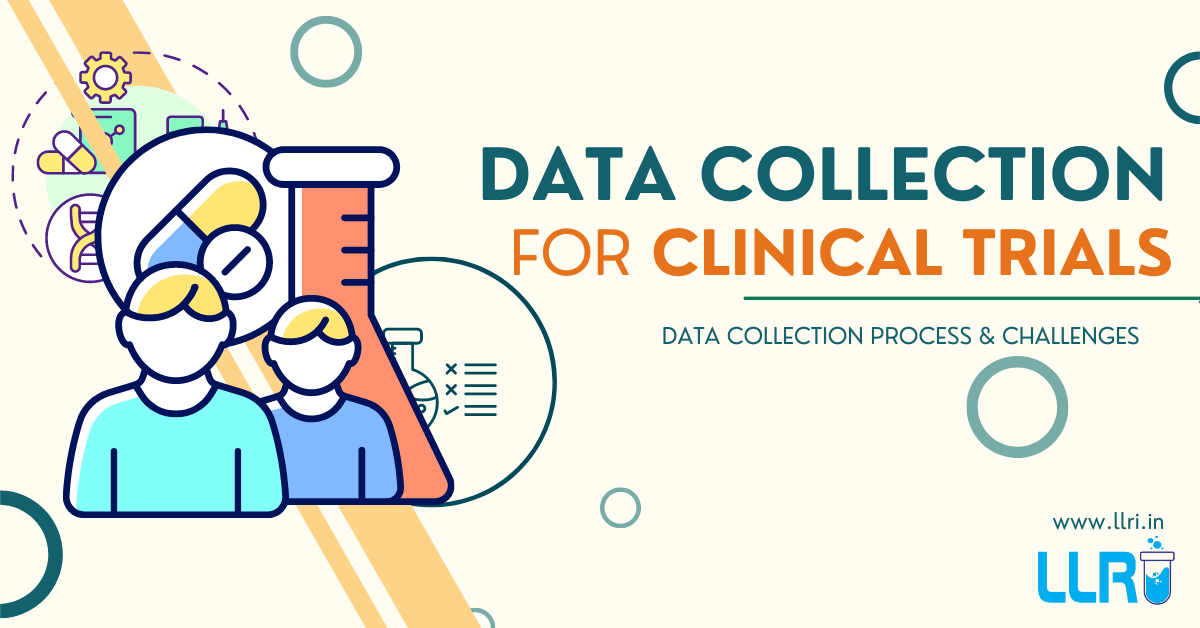Data Collection For Clinical Trials: When designing a clinical trial, planning how data will be collected and captured is easily the central step in the whole process. Data collection for clinical trials is a demanding endeavour, yet it is arguably the most critical part of the study process.
Moreover, Clinical data managers (CDMs) must master every aspect of the data collection and management journey in the clinical trials, including determining what type of data to collect, deciding how to collect it, and determining how to store and analyse it.
In this article, we will do a thorough look through into the process of data collection for clinical trials and other related important details. Take a look at the contents of the blog below:
- Data Collection For Clinical Trials
- Data Collection Process In Clinical Trials
- Best Practices For Data Collection In Clinical Trials
- Challenges Of Data Collection In Clinical Trials
Data Collection For Clinical Trials: Data Collection Process In Clinical Trial
When it comes to data collection for clinical trials in the field of clinical research, there are several key steps involved in the process:
1. Planning: This initial phase involves determining the type of data needed, the sources of data, and the methods for data collection. Detailed protocols and guidelines are established to ensure consistency and accuracy.
2. Data collection: During this phase, data is gathered according to the established protocols. This can involve various methods such as electronic data capture (EDC), paper-based forms, and direct data entry by clinical staff.
3. Data cleaning: Once collected, the data undergoes a rigorous cleaning process to identify and correct errors or inconsistencies. This ensures the integrity and reliability of the data.
4. Data analysis: After cleaning, the data is analyzed to derive meaningful insights. This analysis can help determine the efficacy and safety of the treatment being studied.
5. Data storage: Proper storage of data is essential to maintain its integrity and ensure compliance with regulatory requirements. Secure databases and data management systems are typically used.

Data Collection For Clinical Trials: 11 Best Practices For Data Collection In Clinical Trials
Now that you are aware of the process of data collection for clinical trials, let’s learn about the best practices for data collection in clinical trials:
1. Data cleaning: Data cleaning involves identifying and correcting errors or inconsistencies in the collected data. This step is crucial to ensure the accuracy and reliability of the data. Techniques such as cross-validation with source documents and automated error-checking algorithms are often used.
2. Data collection: Proper data collection is fundamental to the success of a clinical trial. It involves collecting data in a standardized manner according to the trial protocol. This can include using electronic data capture (EDC) systems, paper forms, or direct data entry methods.
3. Data entry: Accurate data entry is vital to ensure the integrity of the data collected. This process involves entering data into a database or data management system. Double data entry, where two individuals independently enter the same data, can be used to reduce errors.
4. Data validation: Data validation checks are performed to ensure that the data meets predefined criteria for accuracy, completeness, and consistency. Automated validation rules and manual reviews are commonly employed to identify and resolve discrepancies.
5. Database locking: Database locking is the process of finalizing the database after all data has been collected and cleaned. Once locked, no further changes can be made to the data. This step ensures the integrity of the data for final analysis and reporting.
6. Direct data capture: Direct data capture involves collecting data directly from the source, such as electronic health records or patient monitoring devices. This method reduces the risk of transcription errors and improves data accuracy.
7. Quality control and monitoring: Quality control and monitoring are essential to ensure the ongoing accuracy and integrity of the data collection process. Regular audits, data reviews, and monitoring visits are conducted to identify and address any issues promptly.
8. Statistics: Statistical analysis is used to interpret the data collected during a clinical trial. Proper statistical methods are applied to ensure that the results are valid and reliable. This step is crucial for determining the efficacy and safety of the treatment being studied.
9. Case report forms: Case report forms (CRFs) are standardized documents used to collect data from each participant in a clinical trial. CRFs should be designed to capture all relevant data in a clear and concise manner, ensuring consistency across the study.
10. Data archiving: Data archiving involves storing the collected data securely for future reference and regulatory compliance. Proper archiving practices ensure that data is preserved in a manner that allows for future retrieval and analysis.
11. Data management plan design: A well-detailed data management plan outlines the processes and procedures for data collection, cleaning, validation, and storage. It serves as a roadmap for the data management team, ensuring that all aspects of data handling are conducted according to best practices.

Data Collection For Clinical Trials: What Are The Challenges Of Data Collection In Clinical Trials?
Despite best efforts, data collection for clinical trials can present numerous challenges, and they are as follows:
1. Data quality assurance: Ensuring accuracy and completeness of collected data can be challenging due to human error in data entry and variability in data interpretation among different investigators.
2. Patient compliance: Maintaining consistent participation and adherence to protocol requirements among participants can be difficult, impacting data completeness and reliability.
3. Technological issues: Integrating different data sources and ensuring compatibility between various systems used for data collection (e.g., Electronic Data Capture systems) can pose technical challenges.
4. Regulatory compliance: Adhering to stringent regulatory standards for data collection, storage, and reporting requires meticulous documentation and adherence to protocols throughout the trial.
5. Data security: Safeguarding patient confidentiality and ensuring data integrity against potential breaches or unauthorized access demands robust security measures and protocols.
6. Logistical challenges: Coordinating data collection across multiple sites or countries, each with its logistical and operational nuances, can lead to delays and inconsistencies in data acquisition.
7. Patient diversity: Ensuring adequate representation of diverse populations in clinical trials to generalize findings while addressing specific demographic considerations adds complexity to data collection strategies.
8. Data monitoring: Implementing real-time data monitoring and resolving discrepancies promptly to maintain data accuracy and trial integrity can be resource-intensive and time-consuming.
9. Emerging technologies: Incorporating new technologies (e.g., wearables, mobile health apps) into data collection introduces opportunities for innovation but requires validation and integration into existing trial protocols.
10. Data analysis complexity: Preparing for the analysis phase by ensuring data consistency and standardization across different sites and ensuring that data collected is usable and compatible across various sites.

On A Final Note…
Data collection for clinical trials is a multifaceted process that requires meticulous planning and execution. It is important to point out that the role of clinical data managers at a clinical research institute is central to this process, and their responsibilities are evolving with advancements in technology.
From the aforementioned information, it is clear that strictly following the best practices for data collection in clinical trials can help minimize the challenges and ensure the integrity and reliability of the data. Despite the inherent challenges, effective data collection is central to the success of clinical trials and the advancement of medical knowledge.
For more information, visit us here!

